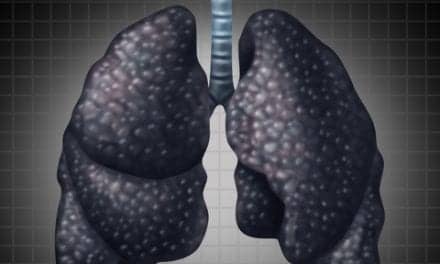The US FDA has granted De Novo marketing authorization for Fibresolve, a digital biomarker that receives and analyzes lung computed tomography (CT) imaging data to help diagnose idiopathic pulmonary fibrosis (IPF).
According to a release from Imvaria, the device’s manufacturer, the clearance signifies the first FDA authorization of a diagnostic tool of any type in lung fibrosis.
“Fibresolve serves as an adjunct to clinicians in assessing patients with suspected lung fibrosis to provide a diagnostic subtype classification, potentially facilitating proper treatments at an earlier stage of the disease process,” says Joshua Reicher, MD, co-founder and CEO of Berkeley, Calif-based Imvaria, in a release.
Additionally, Imvaria announced it secured CPT billing codes from the American Medical Association.
Lung fibrosis is a life-threatening group of diseases that affect hundreds of thousands of people every year, with IPF the most devastating. Traditionally, existing therapies for this disease are expensive and, if given to the wrong patients, potentially toxic. On average, this condition carries a nearly two-and-a-half-year delay in the diagnosis from the initial manifestation of symptoms. Meanwhile, severe lung impairment and even death can happen within one to two years from the onset of lung fibrosis.
To deliver on the promise of artificial intelligence (AI)-driven digital biomarkers to improve the outcomes for patients, Imvaria developed Fibresolve. According to a release from the company, the FDA authorization of Fibresolve, as a billable digital diagnostic tool for clinicians to use for patients, “will expedite the medical community’s access to a non-invasive diagnostic solution using digital biomarkers in a novel way for lung fibrosis.”
Fibresolve previously was granted FDA Breakthrough Device Designation.
“It’s important to have new and validated options, such as Fibresolve, for those patients at risk of IPF,” says Joshua Mooney, MD, MS, clinical assistant professor of medicine – pulmonary, allergy, and critical Care at Stanford Medicine and a board-certified pulmonologist and critical care physician who specializes in the care of interstitial lung disease and lung transplant patients, in a release. “I look forward to seeing the positive impact of Fibresolve on lung fibrosis patients across the nation.”
As an option before other more invasive options are considered, data from patients with suspected interstitial lung disease is run through Imvaria’s AI-trained algorithm to provide non-invasive adjunct information, a diagnostic subtype classification, helping drive diagnosis and setting the patient on a pathway to be given an appropriate treatment on a more timely basis.
Photo 251649057 © Mr.suphachai Praserdumrongchai | Dreamstime.com










